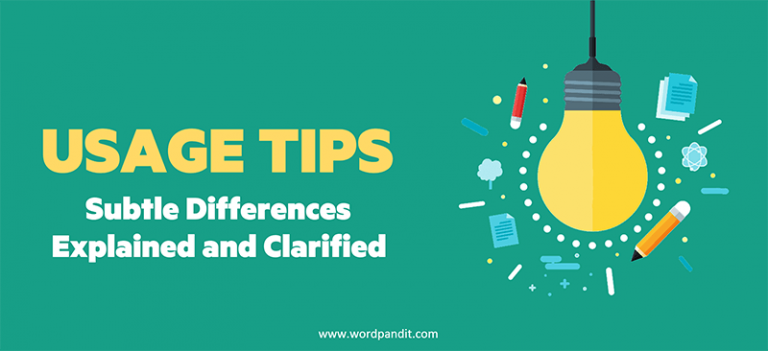🤔📚 Inane vs. Insane: Understanding the Difference
🔍 Introduction
Have you ever heard someone mix up the words “inane” and “insane”? 🤷♂️ It’s a mistake that’s more common than you might think, and it’s easy to see why. The words sound similar, but their meanings are worlds apart. 🌍 Getting them right can make the difference between sounding sophisticated or completely off the mark! 🎯 Imagine trying to describe a harmless joke as “insane” when you meant “inane”—it could lead to quite a misunderstanding. 😅 Let’s untangle these words so you can use them confidently in your writing and conversation, ensuring you always hit the right note when communicating. ✍️💬
📖 Detailed Explanation of Each Word
📜 Definition
Inane: 🤦♀️ Silly, pointless, or lacking in substance. When something is inane, it’s trivial or foolish. Think of a conversation about the color of spoons—it’s probably not adding much value! 🥄 The word is often used to describe remarks or actions that lack depth or significance, making them feel empty or meaningless. 🚫💭
Insane: 🧠⚠️ Mentally deranged or exhibiting severe mental illness. It can also be used informally to describe something extreme or wildly unreasonable, like an “insane” stunt. 🤯 This word often carries a much stronger connotation, implying irrationality or an extreme departure from normal behavior, which can be either literal or figurative. 🔥
🔊 Pronunciation
Inane: Pronounced ih-NAYN. 🔊 This word has a soft, almost airy sound, fitting for something that’s light and lacking substance. 💨
Insane: Pronounced in-SAYN. 🔊 The sharpness of the pronunciation reflects the intensity often associated with the word, whether it’s describing extreme behavior or mental instability. 😵💫
📜 Etymology
Inane comes from the Latin word inanis, meaning “empty” or “vain.” 📜 This origin gives us a clear picture of the word’s essence—it refers to something without content or depth, something that feels hollow. 🕳️
Insane originates from the Latin insanus, meaning “not healthy” or “mad.” 🏥 The prefix in- denotes a negation, while sanus means healthy, emphasizing a lack of mental well-being. This etymology highlights the serious nature of the word, distinguishing it from the lightheartedness of “inane.” ⚖️
💬 Usage Examples
Inane: “The meeting dragged on with inane comments that led nowhere.” 💬 Here, “inane” emphasizes the pointlessness of the comments, showing they added no real value to the discussion. 🌀
Insane: “The driver took an insane risk by speeding through the red light.” 🚗💨 In this example, “insane” conveys the extreme recklessness of the action, underlining how dangerous it was. ⚠️
📝 Synonyms & Antonyms
Inane:
- Synonyms: 🤪 Silly, foolish, absurd, trivial, meaningless
- Antonyms: 🌟 Profound, meaningful, significant, deep, thoughtful
Insane:
- Synonyms: 😵 Crazy, deranged, unbalanced, irrational, extreme
- Antonyms: 🧘♂️ Sane, rational, sound, reasonable, balanced
⚖️ Comparison and Contrast
Inane and insane may sound alike, but mixing them up could drastically change your meaning! 🔄 If you call someone’s ideas inane, you’re saying they’re silly or meaningless, which might be dismissive but not necessarily offensive. 🤔 If you call them insane, you’re questioning their mental stability, which is much harsher and could easily cause offense. 😬 Imagine telling a colleague that their suggestion was “insane” when you meant “inane”—you’re likely to offend! 🚫 Understanding this distinction can help you avoid misunderstandings and communicate more effectively. 🗣️⚠️ It’s important to be mindful of context when choosing between these words, as their implications are vastly different.
✍️ Contextual Usage
“The comedian’s jokes were often inane, but they made the audience laugh.” 😂 In this sentence, “inane” highlights the silliness of the jokes, implying they were light and perhaps lacking in depth, but still entertaining. 🎭
“She was considered insane by some for taking such a big risk, but her daring plan paid off.” 💥 Here, “insane” conveys the extreme nature of the risk, suggesting that it was so bold it seemed irrational to others. 🏆
💡 Mnemonic Devices
Inane: Think of “inane” as “in” an empty brain—meaning silly or pointless thoughts. 🧠💨 This imagery of an empty brain can help you remember that “inane” is all about a lack of meaningful content. 🥱
Insane: Remember “in” and “sane” are opposites, so “insane” means “not sane.” ❌🧠 The stark contrast between “in” and “sane” can help you recall that this word refers to a lack of mental stability or extreme behavior. 🤯
🔗 Related Words
If you found this word pair interesting, you might also want to explore other confusing word pairs like discreet vs. discrete 🤫🔍, elicit vs. illicit 🚨📝, or affect vs. effect 🎭⚙️. These pairs are often mixed up due to their similar sounds but have distinct meanings that are crucial for precise communication. 📖✍️
✅ Conclusion
Now that you understand the difference between inane and insane, you’re better equipped to use them accurately. ✅ Remember, inane is all about silliness, triviality, or a lack of depth, while insane concerns mental health or something extreme and irrational. 🌀🔥 Keep practicing, and soon these words will feel as different as night and day! 🌙☀️ Mastering these distinctions not only enhances your vocabulary but also ensures you communicate your thoughts clearly and effectively. 💬🧠 Words are powerful tools, and using them correctly helps you convey exactly what you mean. 🎯✨
Test Your Knowledge: Inane vs. Insane Quiz
1. The conversation was so ___ that I wanted to leave the room.
2. Jumping off a moving train is an ___ idea.
3. Inane means lacking meaning or substance.
4. Match the synonym to the correct word:
5. Her plan was so risky, some called it __.
6. Which of the following best describes a dangerous decision?
7. The movie had a lot of ___ jokes, but the action scenes were just __!
8. Which word comes from the Latin meaning ’empty’?
9. The word ‘insane’ can be used to describe a silly joke.
10. His argument was so ___ that it made the rest of the discussion seem __.













